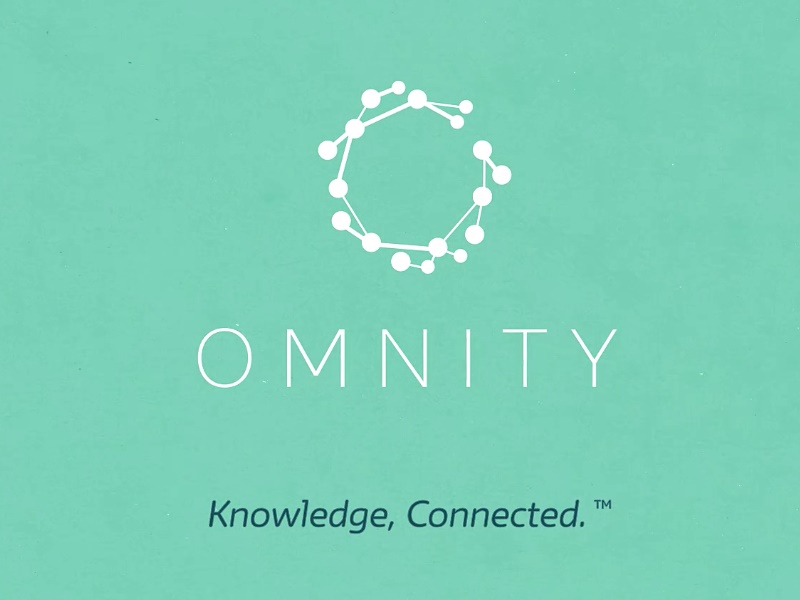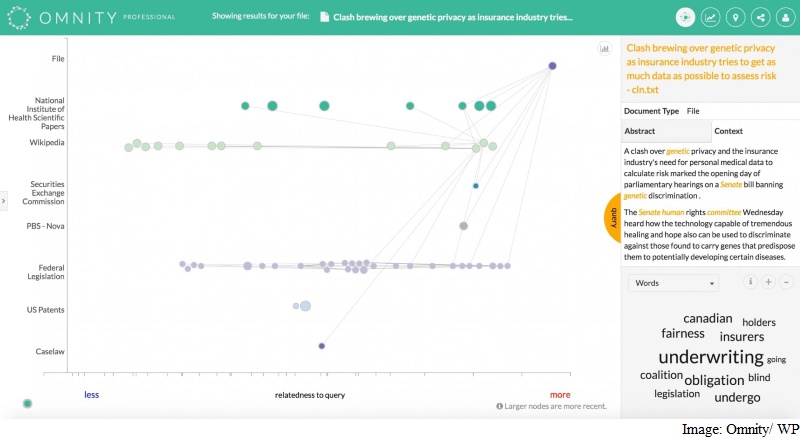This New Search Engine Could Be Way Smarter Than Google

Search engines that aren't Google rarely have much that's interesting to offer to the average consumer. But Omnity, a new search engine aimed at researchers - or even just students doing their homework - offers some glimmers of something new that make it worth taking notice.
Search, as we know it, is ripe for some sort of change, after all. Google is certainly working to bake search more fully into our cars, phones and other devices. Specialized search engines - for flights, places to stay, even .gifs - are going strong. And then there are those AI bots being promised byGoogle, Facebook, Microsoft and others. What are they but high-powered, repackaged search engines?
Omnity stands out by offering results that best match for any given search term and also how those results relate to each other. So if you're about to start a research project on a topic you know little about, you can quickly see who is getting cited the most, whose research is the most influential or which university is leading the pack on that subject. It draws from a number of data sets, including SEC filings, public news organization reports, scientific journals, financial reports and legal histories.

You can also drag and drop documents into the search engine to get an analysis of the "rare words" in it - Omnity obviously strips out the little words like "he," "she," "it" and "but," yet also looks for words that are more unique to any given document to get a better idea of what it's about. For example, I dragged in a legal filing from a case I'm researching for another article. Omnity turned up links to other cases that were relevant but not directly cited in the filing, as well as the names of some experts that I may now end up calling.
That starts to nibble away at a pretty important problem we see with today's Web: The keyword system most of us are using today isn't always that great. It's impressive that search engines know the keywords of an article; that gets a long way to the goal of indexing all human knowledge. But what if it has been mislabeled? You lose access to that whole avenue of exploration. Omnity, by scanning whole documents, gets around that problem to some degree.
In addition to helping pick up some of the information we can lose with normal search, Omnity also illustrates a trend that's cropping up more and more in data products these days: a focus on context.
Enamored of the possibilities of big data, we've spent the last few years gobbling up as much information as possible, looking for the high-indicator "Moneyball"-type data points that tell us everything. The problem is, there's so much information out there in the world that it's easy to lose sight of where it comes from. This is how we end up with (worthy) John Oliver rants about scientific papers being reduced to sensational headlines without any context around them. Now we're increasingly seeing a focus on grounding information in a larger setting again, rather than just looking for the silver bullets. Omnity does an admirable job of focusing on both the highlights, as well as the larger tapestry into which those shiny spots are woven.
So is it a revolution? Realistically, no. It's pretty safe to say that Omnity and its ilk are never going to take over Google. But niche search engines are a funny business, and as we rely more on voice-controlled assistants and smart bots to do our bidding, it's entirely possible that we'll see a greater reliance on these more-specialized tools to get exactly the right information for the queries we're mumbling into our phones. We've certainly seen niche search engines gain their place among top-tier products - just look at Wolfram Alpha, the "computational search engine" that helps power a little thing called Siri.
That may be thinking a little far ahead for Omnity; there are no announcements here about integration with other products just yet. It's launched at a base price of $99 per month for researchers, though it does have a basic/academic version for free.
But as search as we know it gets morphed into something new, it's worth looking at new products like this to see where things might be going and how it could change our habits in the long run.
No comments:
Post a Comment